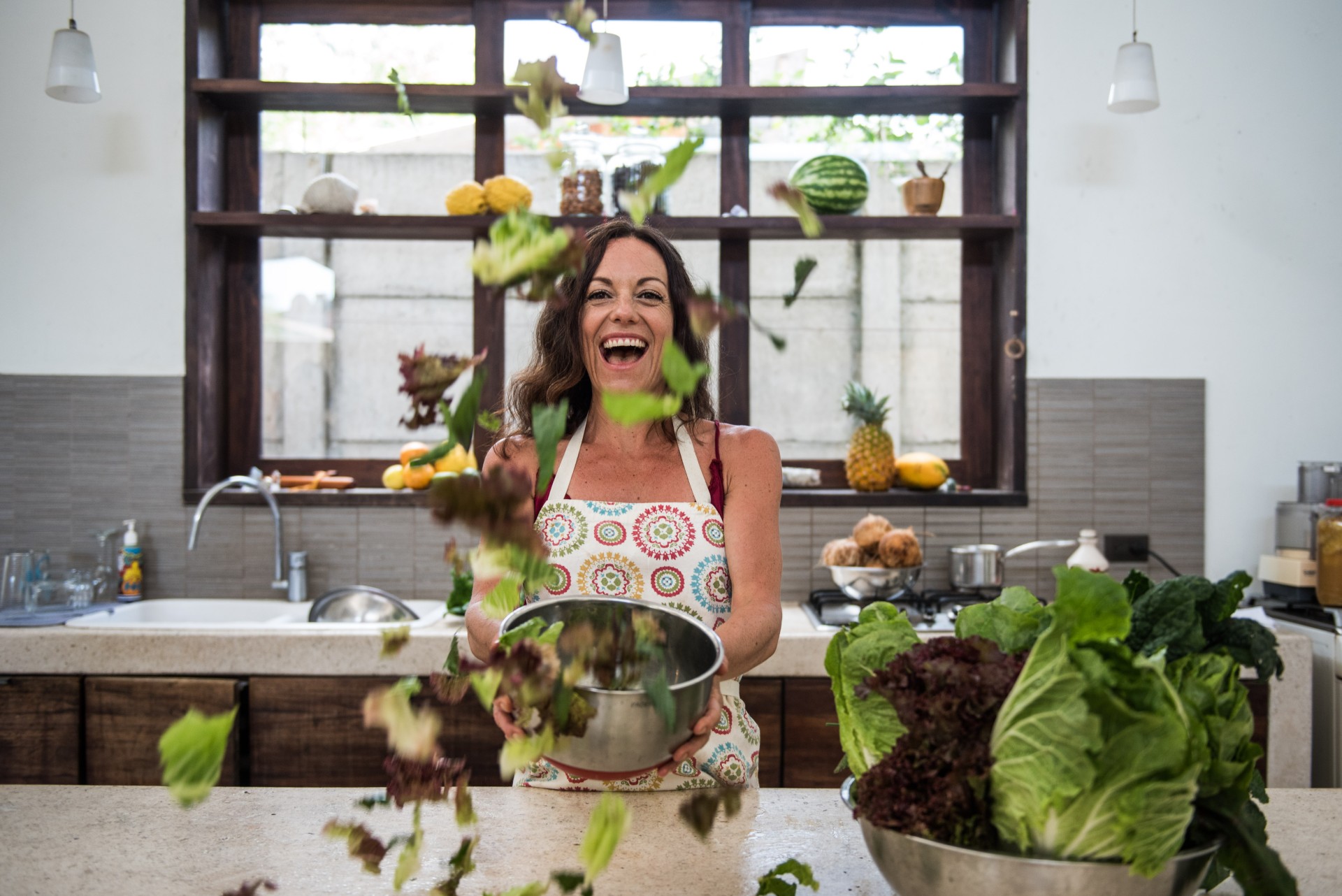Though March is generally International Women’s Month, we at F&B like to stay ahead of the curve by providing a platform to some of the strongest, most progressive women in the industry.
European Olive Insights
“I think it’s a great thing that awareness continues to be raised on the underlying discrepancies in the food and beverage industry that in some areas are historically male dominated,” says Kara Landau, CEO and founder of the “functional” snacking brand Uplift Food (https://upliftfood.com). When she was working as a consultant in the food industry, Landau admits that she, “never even thought about the fact that my gender was playing a positive or negative role.” When she launched her own businesses, however, she says that it became, “significantly more evident that I was part of a minority simply due to my gender.”

“I find as a woman with a new company, it has been difficult to get others to take me seriously and to understand my vision,” adds Brittany Baker, CEO of the allergy-sensitive baking company FOMO (https://fomobaking.com). By way of example, Baker recalls when she went looking for space for her dedicated allergen-free commercial kitchen, “there were many landlords who were unwilling to take a chance on a female owned start-up.” In fact, she also recalls more than one male landlord asking if her husband or father could come to help negotiate and finalize the deal. “It felt insulting and almost comical,” says the former lawyer, noting that one landlord went so far as to try to explain to her what a percentage was.
Many female food entrepreneurs have faced similar challenges. Award-winning plant-based chef Joanne Young (www.thehealingcuisine.com/) suggests that, “most of those challenges are found in the back of the house in restaurant kitchens, where male dominance has been the norm.”

Mona Ahmad of Mona’s Currynations (www.monascurryations.com) – a line of restaurant-inspired, clean-ingredient frozen Pakistani and Indian meals – has also noticed few women, especially minority women such as herself, are in senior roles in food manufacturing. She is grateful that the factory her company utilizes has a female manager and production team who work from 7AM to 2PM so that they can all have appropriate work-life balance.
“Partnering with this female team,” Ahmad suggests, “has made it easier to communicate and understand what we are trying to achieve.”
Read Also: Exploring the Rich Flavors of European Olives in Food & Beverage
Brittany Baker and her co-founder of Littlemore (https://littlemoreorganics.com) are still working full-time in demanding jobs while also running this new business. In addition, Joana Fraser is a practicing pediatrician with Boston Children’s Hospital and a clinical instructor at Harvard Medical School. Fraser’s partner, Lauren Bain, is an MBA with a background in finance and management consulting. In addition to having challenging jobs, they have five children under the age of five. While they admit to being “insanely busy,” they both conclude that they “wouldn’t have it any other way.”

“The food industry has traditionally been a male-dominated space,” Bain observes, “but we truly believe that our experiences as women and mothers have uniquely positioned us to launch Littlemore.”
Similarly, Gina Lommerin of Jaxs Snacks (https://getjaxs.com) says she is “proud to say I am a woman in the food space,” and gratefully adds that she has been “inspired by other successful women across all industries.”Apparently, both Littlemore and Jaxs were inspired by family, as both foods were created to offer both children as well as adults better options for nutrition and food sensitivities.

“The snack aisle is failing our young children,” Fraser maintains, citing highly-processed, salt- and sugar-filled foods that are not portion controlled and that often are considered “healthy” snacks by parents, schools, and other stakeholders. Combining her motherly desire to help children eat better and her medical understanding of how to make this happen, Fraser created a plant-based food with only four ingredients that is healthy and delicious for all ages.
When Lommerin’s daughter, Jax, was diagnosed with several food allergies, she was faced with the challenge of finding safe, healthy snacks that she would actually eat. As so many available snacks contained some sort of allergen (e.g., dairy, nuts, etc.), Lommerin created a gluten- and nut-free kids trail mix that is free of all major allergens and tastes just as great as the more processed varieties. “It fills a unique need for school-safe snacks,” Lommerin suggests.
As a mother of three, Ahmad also faced significant personal challenges when trying to start her own business. “I am a mom first,” Ahmad asserts, recalling having her twins bouncing on her knees as she typed an early business plan and hosted business meetings at playgrounds. She especially remembers such a meeting at which her colleague ridiculed her for bringing her children. “It was so ironic,” she suggests, “especially since all their advertising focused on how important family is.”
Young also cites the additional challenges that are involved for food entrepreneurs who are also mothers. “Getting food out in a timely manner and getting dinner on my own table sometimes feels like an impossible feat,” she admits, but explains that, just as she does for the families and companies for whom she caters her fresh, plant-based menu, she often prepares meals ahead of time for her family as well.
As to whether the extra work is worth it, Young says it is. Young knows that her efforts not only inspire people to eat more healthy foods but also “inspire other young woman to fulfill their dreams and not let societal norms hold them back.”
Young has experienced the benefits that come from her fellow food-makers sharing “tips and tricks” and supporting each other through the journey. A challenge for Ahmad has been the confusion around resources that are allegedly intended for female entrepreneurs. “It is not clear what these resources are and who would have a complete list of these resources,” she maintains, “so many times we don’t even know that they exist.”
Many women in the space still have trouble connecting to those who they need to get their companies off the ground. Fortunately, many find ways to overcome these challenges as well. “I find the best practice to deal with people who doubt me or my vision is to just power ahead,” Baker asserts. Landau suggests that many women have been able to gather power from the community they have built and also from the growing cadre of men who see the value in their ideas and want to support them as well. “[They] make a concerted effort to both support and raise women up,” Landau observes, “so that they can bring their unique value to influence the progression of the industry.”
Ines Chattes, Chef /owner of Miami’s popular Open Kitchen (www.openkitchenmiami.com ), was recently appointed Culinary Director of the recently-kashered UN Plaza Grill (https://unplazagrill.com). Chattes cites the physical and mental strength and endurance involved in cooking and running restaurants and encourages her fellow women to, as Baker said, “just power ahead.” “We need to work harder to prove that we can do the job just as good as any male in the kitchen,” Chattes insists. While she hopes that any professional will be “fully valued by [their] experience and qualifications only,” Chattes also suggests that her female colleagues, “bring the will and the drive to work harder everyday, attention to detail, and the capability to multitask.”
Landau thrives to assemble her team based upon talent. “I have continued to focus on finding the best people for their respective roles within the company,” she maintains, noting how “balanced” her company is.” “I believe both genders bring innate unique strengths that when pieced together correctly can enhance everyone’s abilities to succeed. “Ultimately I believe I am bringing them in on an opportunity that I trust will be valuable to them too,” she says, “therefore I know deep down I deserve those that believe in me!”
Of course, another challenge has been COVID, especially for those who launched just before or even during the pandemic. “FOMO launched mid-November 2019,” Baker recalls, “and by March of 2020, people stopped having the social gatherings that would result in the need for my desserts.” While it has been difficult to promote her items during the past year, Baker is hopeful to be able to be baking again soon. “I am optimistic that the demand will be there as gatherings resume,” she says, “[and] hope, as everyone does, for the world to heal, and social gatherings safely resume.”Speaking more to he point of this story, Baker expresses a wish for her daughters to find the professional world as “more egalitarian,” accepting and supportive of their dreams. “I want them to grow up believing they can achieve anything they dream of,” Baker concludes.







